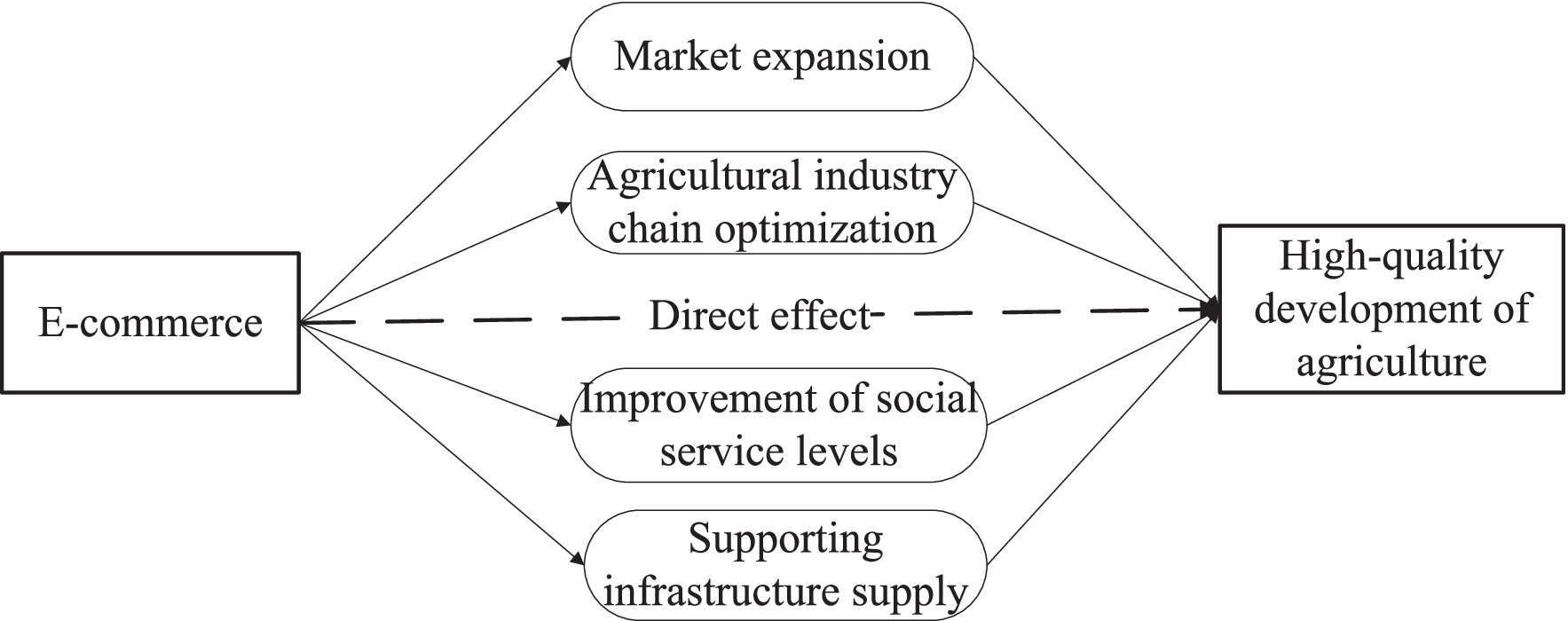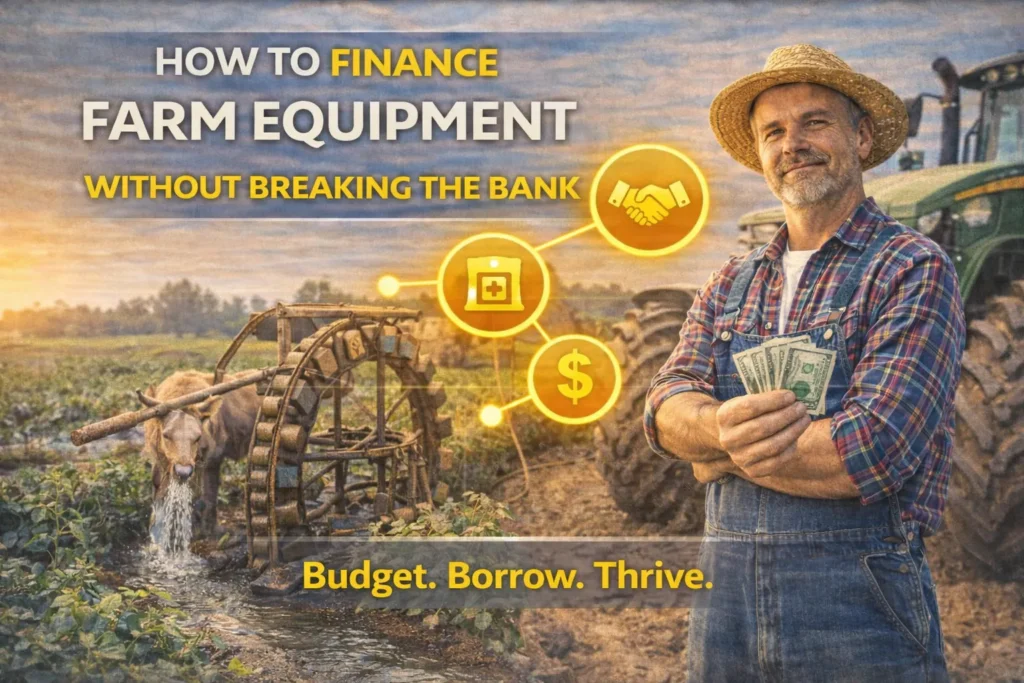Imagine buying fresh farm produce without ever stepping foot in a market. Sounds convenient, right?
That’s the magic of e-commerce in agriculture. You no longer need to wake up early to catch the freshest fruits and vegetables. With just a few clicks, you can have them delivered to your doorstep. This shift is not just about convenience; it’s reshaping how farmers reach you and how you access your food.
Have you ever wondered how this digital transformation is affecting the agricultural landscape? How is it changing the way farmers market their goods? You’ll discover the profound impact e-commerce is having on agricultural marketing. Get ready to explore how this digital revolution is making farm-to-table a reality for everyone.
Digital Transformation In Agriculture
Digital transformation in agriculture is reshaping how farmers market their products. With e-commerce, growers reach wider audiences and connect with buyers globally. Technology tools make farming more efficient and profitable. Farmers use apps and platforms to sell produce directly. This direct access reduces reliance on middlemen.
Enhancing Market Access
E-commerce platforms give farmers new market opportunities. They can list their products online and reach customers far and wide. More buyers mean more sales potential. Farmers benefit from increased visibility and demand. This expansion of market access opens doors to better pricing.
Improving Supply Chain Efficiency
Digital tools streamline the agricultural supply chain. Information flows faster between farmers and consumers. This reduces delays and errors in transactions. Efficiency in the supply chain lowers costs for both parties. Buyers receive fresh products quicker and at better prices.
Empowering Small-scale Farmers
Small-scale farmers gain a competitive edge with e-commerce. They showcase their unique products to interested buyers. Online platforms provide equal opportunities to compete with larger farms. Small farmers can build a loyal customer base. This empowerment boosts their income and sustainability.
Data-driven Decision Making
Access to data helps farmers make informed choices. E-commerce platforms provide insights into consumer preferences. Farmers adapt their crops and marketing strategies accordingly. Data-driven decisions lead to improved harvests and profits. Analytics offer valuable feedback on product performance.
Increasing Transparency And Trust
Transparency in transactions builds trust with buyers. E-commerce platforms enable buyers to trace product origins. This fosters confidence in quality and safety. Trust leads to repeat purchases and customer loyalty. Farmers benefit from stronger relationships with their customers.

Access To Global Markets
E-commerce opens new doors for farmers, allowing them to sell products worldwide. This shift increases profits and reduces middlemen. Farmers now reach more buyers with ease.
Access to global markets has transformed the way agricultural products are marketed. E-commerce has opened doors for farmers and producers to sell their goods internationally. This shift has not only expanded market opportunities but has also changed the dynamics of supply and demand in exciting ways.
Understanding The Global Reach
Today, a farmer in a remote village can sell organic apples to a buyer in Tokyo with just a few clicks. E-commerce platforms have bridged the gap between local producers and international buyers.
This access levels the playing field, allowing small-scale farmers to compete with larger companies. The world has become the marketplace.
The Role Of Digital Platforms
Websites like Alibaba and Amazon have become the new marketplace for agricultural products. These platforms provide tools and resources to help sellers navigate international trade regulations.
They also offer features like language translation and currency conversion. This reduces barriers and simplifies the process for both sellers and buyers.
Impact On Pricing And Competition
Global market access can lead to better pricing for farmers. When demand is high in one region, producers can shift their sales to that market.
This flexibility can help stabilize income and reduce the risks associated with price volatility. However, it also means that competition is fierce, and staying competitive is crucial.
Challenges To Consider
While global access is beneficial, it comes with its own set of challenges. Logistical issues, such as shipping and customs, can be daunting.
Farmers need to be aware of international standards and regulations. Staying informed and seeking expert advice can help navigate these complexities.
Personal Insights
When I first started selling products online, I was amazed at how quickly international orders came in. It was both exciting and overwhelming.
The key was to stay organized and prioritize learning about each market’s unique demands. This experience taught me the value of adaptability and continuous learning.
What Does This Mean For You?
Are you ready to take your agricultural products to the global stage? Understanding market trends and consumer preferences is essential.
Consider starting small and gradually expanding as you gain confidence. The world is at your fingertips—are you prepared to make the leap?
Challenges And Opportunities
E-commerce reshapes agricultural marketing by offering global reach and direct consumer access. Challenges include internet connectivity and logistical issues. Opportunities arise from increased efficiency and broader customer bases.
E-commerce is reshaping agricultural marketing, presenting both challenges and opportunities. The digital marketplace offers farmers a chance to reach wider audiences and sell products directly to consumers. However, navigating online platforms can be complex, especially for those unfamiliar with technology. This dynamic environment demands adaptability and creativity from farmers and marketers alike.
Challenges Of E-commerce In Agricultural Marketing
Farmers often struggle with the technical aspects of e-commerce. Setting up an online store and maintaining it can be daunting. You might find yourself overwhelmed by the intricacies of digital payment systems and website design.
Logistics can be a significant hurdle. Shipping fresh produce requires careful planning to maintain quality. You need to consider packaging that protects your goods and preserves freshness.
Building trust with online consumers is crucial. People want to know where their food comes from. Transparent communication about farming practices can help you establish credibility and foster loyal customers.
Opportunities Through E-commerce
E-commerce opens doors to global markets. You can showcase your unique products to customers worldwide, expanding your reach far beyond local boundaries. Imagine your organic honey being enjoyed by someone halfway across the globe.
The digital space allows for personalized marketing. You can tailor your offerings to specific consumer preferences, which can increase sales. Consider using targeted ads or email campaigns to highlight your seasonal produce.
Social media platforms can amplify your marketing efforts. Sharing stories about your farm, the care you put into your products, and the beauty of your land can captivate an audience. Engagement can turn followers into customers.
How Can You Overcome These Challenges?
Embrace technology by learning and adapting. Online tutorials and community forums can be invaluable resources. Have you considered partnering with a tech-savvy friend or relative to help navigate the digital landscape?
Invest in efficient logistics solutions. Collaborate with local delivery services that specialize in handling produce. You might find that combining efforts can reduce costs and improve delivery times.
Build relationships with your online community. Be transparent and responsive. Answer questions and share updates about your farming practices. Your honesty can build trust and encourage repeat business.
Are you ready to transform your agricultural marketing strategy with e-commerce? Challenges are just stepping stones to success. With the right approach, opportunities are plentiful.

Future Trends In Agri-e-commerce
The world of agriculture is changing fast. E-commerce plays a big part. Farmers and buyers connect online. This trend will grow in the future. Understanding these changes helps farmers plan better. It also helps buyers get fresh produce easily.
Technology-driven Farming
Smart tools help farmers work better. Drones and sensors collect data. This data improves crop quality. Better quality means better sales online. Farmers can sell more with less waste.
Blockchain For Transparency
Blockchain makes food tracking easy. It shows the journey from farm to table. Buyers trust brands that show this. Trust boosts online sales. Blockchain is key for future growth.
Ai And Machine Learning
AI helps in predicting demand. Farmers know what to grow and when. Machine learning suggests best prices. These tools make online selling smarter and easier.
Mobile Commerce Expansion
More people use phones for shopping. Farmers reach more buyers this way. Apps make buying and selling simple. Mobile commerce is a trend to watch.
Direct-to-consumer Models
Farmers can sell directly to consumers online. This cuts out middlemen. It means better prices for both sides. Direct sales build strong customer relationships.
Sustainable Practices And Green Marketing
People care about the environment. Sustainable farming is important. Green marketing attracts eco-conscious buyers. E-commerce platforms highlight these practices.
Virtual Marketplaces
Virtual markets connect farmers and buyers globally. They offer wider reach. Farmers get access to new markets. This boosts their income potential.
Social Media Integration
Social media helps market products. Farmers share stories and updates. This builds a loyal audience. Engaging content attracts more customers.

Conclusion
E-commerce reshapes agricultural marketing. Farmers now reach wider audiences online. This access boosts sales and reduces costs. More buyers mean better opportunities for farmers. Technology links producers directly with consumers. Trust and transparency grow stronger. Small farms gain a fair chance in the market.
E-commerce tools simplify transactions and logistics. As technology evolves, farmers adapt quickly. Embracing e-commerce can benefit agricultural communities. Future growth and sustainability depend on these digital connections. Farmers must leverage these tools effectively. The shift to e-commerce is vital for progress.
Agricultural marketing thrives in this digital age.



